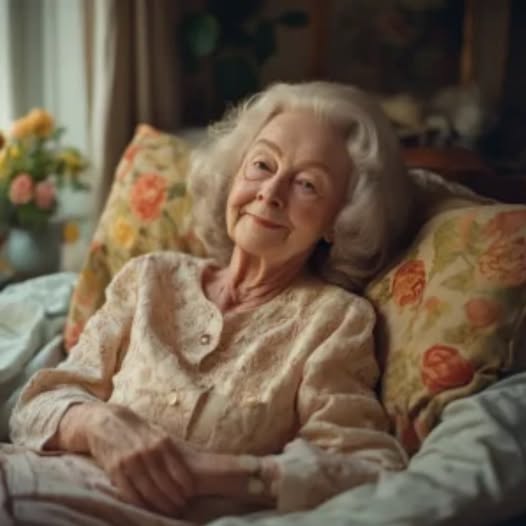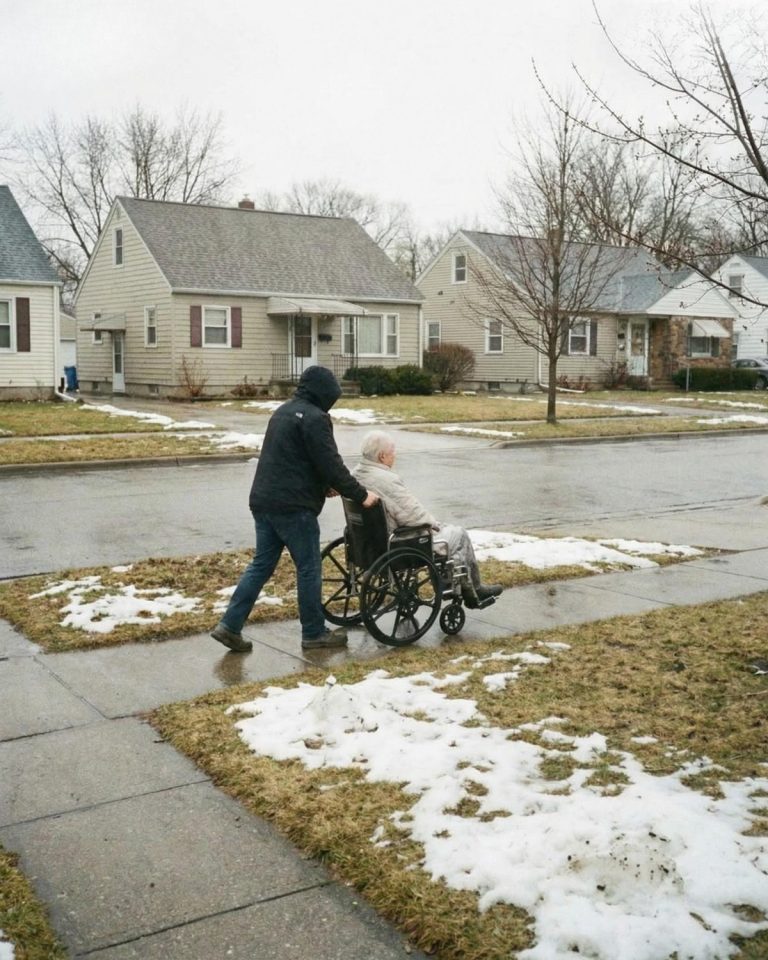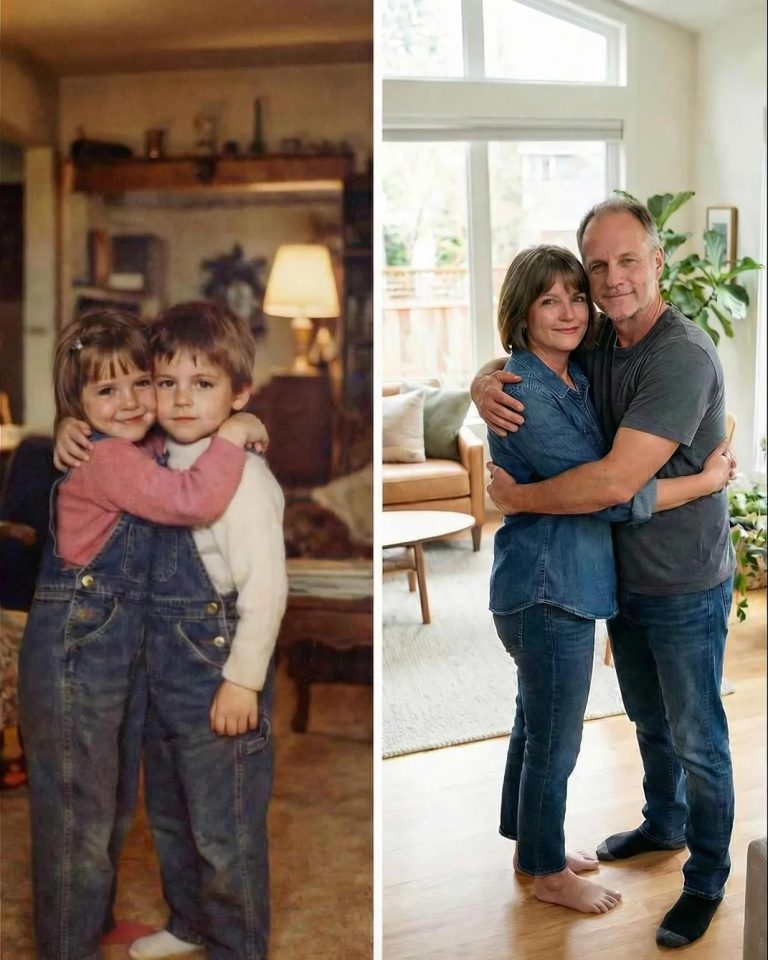
I took care of an elderly, wealthy woman for many years until she passed away. When she died, her family suddenly appeared, hoping to get something from her wealth. But she had left behind a surprise that changed all our lives.
I had been looking after Mrs. Patterson for seven wonderful years. She was old, fragile, and lonely. Her family had abandoned her, but she had enough money to keep me as her caretaker. I never thought this job would cause me problems later.
Mrs. Patterson lived in a grand house on a hill with large gardens. She had staff to take care of things, but she was no longer able to do much herself. Her eyes, once full of life, had dulled with age. But when we played Scrabble or baked her famous apple pies, they would light up again.
Her family visited just enough to make it seem like they cared. They would arrive in fancy clothes, put on fake smiles, take some money, and leave.
After they left, she would sit by the window, heartbroken, watching and waiting for them to come back. But they never did.
Over time, she became more than just my employer—she became my family. We shared laughter, stories, and quiet moments. She loved taking pictures of us together. Despite all her wealth, she was surrounded by loneliness.
I had no family left either. My parents had passed away, and I was their only child. I lived in a small rented room near Mrs. Patterson’s house. My life was simple, but my connection with her made it meaningful.
One rainy afternoon, as we watched the raindrops on the window, she sighed.
“Grace, you are the only person who truly cares about me. I’m really thankful for that.”
I was surprised. “There’s no need to thank me, Mrs. Patterson. It has been a pleasure to care for you all these years.”
We never talked much about her family, but I could tell they didn’t care about her. I saw how they only paid attention to her jewelry and money. I held her hand, and she smiled.
“I’m glad you’re here, Grace. You are the only real family I have.”
I held back tears. “You are my family too.”
We never spoke about it again, but from that day, I felt even more responsible for her. It wasn’t just a job—I loved her. I should have known she was saying goodbye.
One morning, I found her peacefully lying in bed. She had a soft smile on her face, and her hand rested on a photo of her late husband. My knees gave out, and I sank to the floor, heartbroken.
I knew what I had to do. She had shown me where she kept her children’s phone numbers. I called them, and when they heard the news, they dismissed me, saying they would handle everything.
The funeral was quiet. Her children, grandchildren, and other relatives were there, dressed in black, exchanging fake condolences. They even shed a few tears, but their eyes were full of greed.
I could see it—the excitement, the hunger for her wealth. They didn’t acknowledge me, except for the occasional glance of suspicion.
After the service, I stayed behind, sitting alone in the church, feeling lost. She had been more than an employer—she had been my friend, my family.
That night, I returned to my small room, exhausted and grieving. Her laughter, her perfume, her warmth still lingered in my mind.
But just as I was sinking into my sorrow, I heard a sharp knock at the door.
That knock changed everything.
I opened the door to find two police officers standing there. One of them, a tall man with graying hair, spoke first.
“Are you Grace?”
I nodded, my heart racing. “Yes… is something wrong?”
“We need you to come with us,” he said.
Fear gripped me. Had I done something wrong? Had I failed Mrs. Patterson in some way?
My mind raced with worry…
“We need you to come with us,” he said.
Fear gripped me. Had I done something wrong? Had I failed Mrs. Patterson in some way? My mind raced with worry.
“I… I don’t understand,” I stammered. “Is this about Mrs. Patterson?”
The other officer, a younger woman with kind eyes, stepped forward. “No need to be alarmed, Grace. We’re not here to accuse you of anything. But we need to show you something at the station. It concerns Mrs. Patterson’s will.”
Confused, I grabbed my coat and followed them into the rainy night. The drive was quiet. My thoughts swirled like the storm outside.
At the station, they led me to a small conference room. A lawyer was already there, briefcase open, papers stacked neatly on the table.
“Ms. Grace,” he said, standing to shake my hand. “I’m Thomas Elridge. I represented Mrs. Patterson for over two decades. She left very specific instructions regarding her estate—and you.”
I blinked. “Me?”
He nodded, pulling out a thick envelope. “This is a video will. Mrs. Patterson recorded it two months before she passed. She requested it be shown only in the presence of law enforcement, her lawyer, and you.”
He placed a laptop on the table and pressed play.
The screen lit up with the familiar sight of Mrs. Patterson, sitting in her favorite velvet chair. She wore her pearl necklace and a gentle smile.
“My dear Grace,” she began, her voice warm. “If you’re watching this, I’ve likely passed on. First, thank you. Thank you for loving me when no one else did. For seeing me—not my wealth, not my house—but me.”
She paused, eyes glistening.
“My children will come for my money, of course. But they abandoned me long ago. You never did. You were the daughter I never had. And so, I’ve made a decision.”
I held my breath.
“I am leaving the house, my savings, and the majority of my estate to you, Grace. My children will receive small inheritances, but they’ve earned nothing more.”
Gasps escaped around the room. My mouth fell open.
“Live your life fully, Grace,” she continued. “Travel, paint, bake those apple pies, and laugh loudly. You gave me joy in my final years. This is my way of giving a little back.”
The screen faded to black.
Tears streamed down my cheeks. I couldn’t speak.
Mr. Elridge cleared his throat gently. “We will begin the process of transferring the estate to you. Of course, there may be challenges from her family, but the legal documents are sound. She made her wishes very clear.”
I nodded, still in shock. “I don’t know what to say.”
“You don’t need to say anything,” the young officer said softly. “You already earned this.”
Later that week, word got out. Her children tried to contest the will—but there was no loophole, no mistake. Mrs. Patterson had outsmarted them all. The internet lit up with stories of the loyal caregiver who inherited millions, and for once, the world saw kindness rewarded.
I moved into her grand house on the hill, now mine, but I kept everything just as she left it. I planted her favorite flowers each spring. I kept her picture on the mantel. I even still played Scrabble alone sometimes, imagining her voice correcting my spelling.
I didn’t feel rich—not in the traditional sense. But I felt seen, valued, loved.
And I would carry her love with me for the rest of my life.



